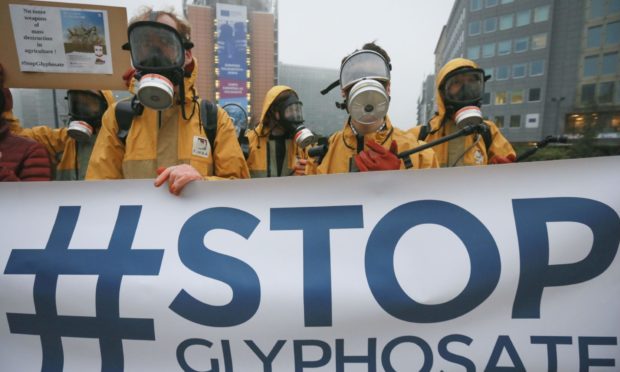The battle over glyphosate might seem a long time ago, but the product is already back in the firing line in the EU.
The registration is due to expire at the end of next year, and opponents have maintained their campaign against the herbicide since its registration was extended in 2017.
Now a group of farmers and industry experts have begun hitting back, arguing that the decision must be based solely on science, while taking full account of the benefits of glyphosate.
The group claims it is more essential than ever as an effective herbicide, because climate change is driving weed growth. They also claim that because the product is more effective than alternatives, it offers environmental and cost benefit from reduced fuel use for machinery operations.
Their core message is that those making the decision must begin to listen more to farmers than pressure groups opposed to all agrochemicals.
Labelling
The European Food Safety Authority (EFSA) has offered food manufactures new advice on labelling that goes beyond use by and best before dates.
Much of this relates to food bacteria growth after food has been opened, even within these dates. EFSA has also offered additional advice on thawing food and on how that process could influence use-by dates, particularly if food has been frozen at home.
It says that in general food should be thawed slowly, ideally in a refrigerator. This advice reflects both the need for consumer safety and the EU’s commitment to dramatically reduce food waste as part of its Green Deal strategy.
Green Deal
Meanwhile, the UK government is now committed to a multi-billion pound plan that will match or exceed the EU’s Green Deal, built around carbon reduction targets.
The UK plan includes a specific commitment that agriculture must change to reduce the production and consumption of red meat and dairy products.
It means farmers are now likely to face the same restrictions as under the Farm to Fork Common Agricultural Policy’s strategy, but without the guarantee of direct payment support.
The policy is complicated in the UK by the government’s free trade stance towards food imports, while the EU maintains higher prices by imposing tariffs on imports.
